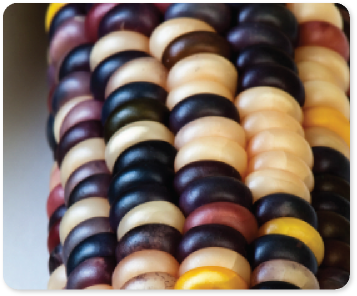
Online Texts for Craig White's Literature Courses
|
Of Plymouth Plantation
from Chapter Fifteen. [Self-seeking threatens
community] |
|
[¶15.1] These things premised, I shall
now prosecute the proceedings and affairs here. And before I come to other
things I trust speak a word of their planting this year; they having found
the benefit of their last year’s harvest, and setting corn for their particular
[individually], having thereby with a
great deal of patience overcome hunger and famine. Which makes me remember a
saying of Seneca’s Epistle 123. That a great part of liberty is a
well-governed belly, and to be patient in all wants. They began now
highly to prize corn as more precious then silver, and those that had some to
spare began to trade one with another for small things, by the quart, pottle
[two quarts], and peck, etc.; for money
they had none, and if any had, corn was preferred before it.
[¶15.2] That they might therefore increase their tillage to better advantage, they made suit to the Governor to have some portion of land given them for continuance, and not by yearly lot, for by that means, that which the more industrious had brought into good culture (by much pains) one year, came to leave it the next, and often another might enjoy it; so as the dressing of their lands were the more slighted over, and to less profit. Which being well considered, their request was granted. And to every person was given only one acre of land, to them and theirs, as near the town as might be, and they had no more till the seven years were expired. The reason was, that they might be kept close together both for more safety and defense, and the better improvement of the general employments.
[¶15.3] Which condition of theirs did make me often think, of what I had read in Pliny of the Romans’ first beginnings in Romulus’s time [Pliny = Roman historian, 23-79; Romulus = founder of Rome]. How every man contented himself with two acres of land, and had no more assigned them. And chapter 3: “It was thought a great reward, to receive at the hands of the people of Rome a pint of corn.” And long after, the greatest present given to a Captain that had got a victory over their enemies, was as much ground as they could till in one day. And he was not counted a good, but a dangerous man, that would not content himself with seven acres of land. As also how they did pound their corn in mortars, as these people were forced to do many years before they could get a mill.
